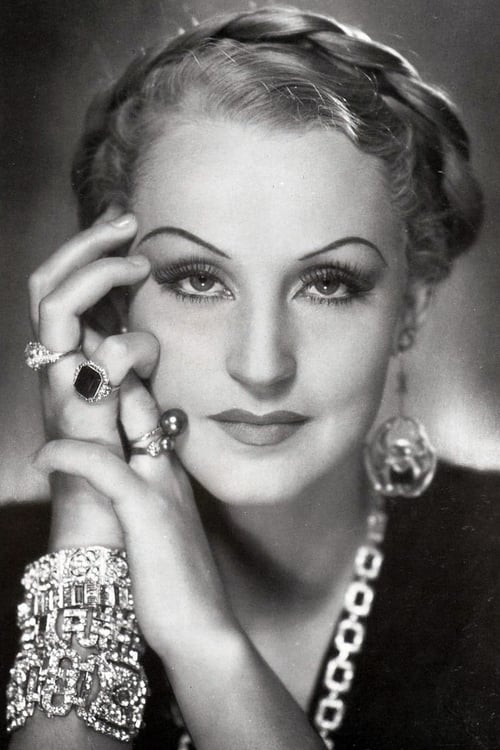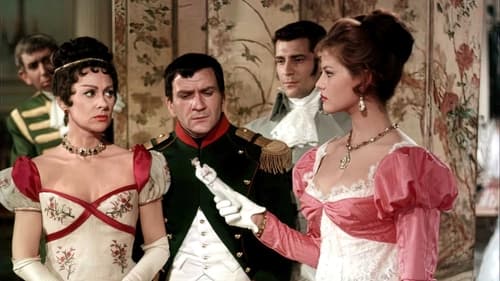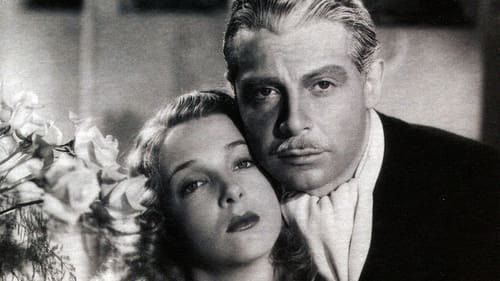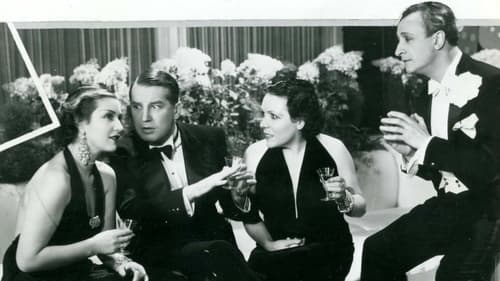
Elvira Popescu
Birth : 1894-05-10, Bucarest, Romania
Death : 1993-12-11
History
Elvira Popescu (10 May 1894 – 11 December 1993) was a Romanian-French stage and film actress and theatre director. During the 1930s and 1940s, she starred in a number of French comedy films.
Born in Bucharest, Popescu studied drama at the Music and Drama Conservatory in her native city, under the guidance of Constantin Nottara and Aristizza Romanescu. In 1911 Grigore Brezeanu was making the first Romanian films to deal with fiction. He employed Popesco as well as other leading actors like Nottara and Romanescu. The first two films were called "Fatal Love" and "Spin a Yarn". No copies are known of these films. Popesco made her debut at the National Theatre Bucharest at age 16. In 1912, she played herself in the movie Independența României, directed by Aristide Demetriade.
In 1919 she became artistic director of the Excelsior Theatre. In 1921, Popescu started Teatrul Mic, which she managed in parallel with the Excelsior. In 1923, she starred in the movie Ţigăncuşa de la iatac, directed by Alfred Halm.
At the urging of Louis Verneuil, the French playwright, Popescu moved in 1924 to Paris. Under Verneuil's direction, she played the leading role in Ma Cousine de Varsovie, at the Théâtre Michel (1923). She also played in Tovaritch (1933), La Machine infernale (1954), Nina (1949), and La Mamma (1957). Later on, she was director of Théâtre de Paris (1956–1965), and Théâtre Marigny (1965–1978).[5] At age 84, she played again in La Mamma.
Elvira Popescu also played in movies, such as La Présidente (Fernand Rivers, 1938), Tricoche et Cacolet (Pierre Colombier, 1938), Ils étaient neuf célibataires (Sacha Guitry, 1939), Paradis perdu (Abel Gance, 1940), Austerlitz (Abel Gance, 1960),[6] and Purple Noon (René Clément, 1960).
Shortly after her debut in 1910, Popescu married comedian Aurel Athanasescu and they had a daughter named Tatiana. After a few years, she divorced, and married Ion Manolescu-Strunga, Minister of Industry and Commerce (who was to die in Sighet prison in the 1950s). Her third husband was Count Maximilien Sébastien Foy (born in Paris on 17 April 1900, died in Neuilly-sur-Seine on 11 November 1967).
She died in Paris at age 99, and was interred at Père Lachaise Cemetery.
Source: Article "Elvira Popescu" from Wikipedia in English, licensed under CC-BY-SA 3.0.

Karma, la voyante

Rosaria

Lætitia Bonaparte
Napoleon Bonaparte crowns himself emperor and fights the English, Austrians and Russians in 1802.

Mrs. Popova
Tom Ripley is a talented mimic, moocher, forger and all-around criminal improviser; but there's more to Tom Ripley than even he can guess.

Mona Lorenza
In 1914, in the first months of World War I, Louise Jarraud loses her husband, killed on the front. Shortly after, she gives birth to a baby, who soon dies. Devastated by this double misfortune, Louise decides to dedicate her life to caring for the children of others. She becomes a nurse with several employers, giving her affection to little boys or girls. A widower and another man propose to her but she refuses twice determined as she is to live only for the children in her charge.

Sofia de Vinci
Stuck in Angoulême between her uncle, who composes classical music, and her aunt, who is a fan of contemporary music, young Irène finds life boring. Fortunately, there is swing music which illuminates her days. So when, one day, Raymond Serre and his swing orchestra come to Angoulême, she seizes the opportunity to slip the copy of a song she has written into the pocket of one of the musicians. The trouble is that while she is doing so, the train she has boarded pulls out.

Madame Fanny
In the pound, Pipo the dog recounts his adventures to his fellow inmates.

Sonia Vorochine
In pre-World Ward I in Paris, a budding artist, Pierre LeBlanc, falls in love and marries Janine, a dressmaker's assistant. Pierre has a flair for designing clothes, and he and his bride live in a blissful paradise, until the war breaks out and he becomes a soldier. Janine dies in childbirth and, no longer desiring to live, Pierre volunteers for a dangerous patrol behind German lines. While recuperating in the hospital from a wound he received on the mission, Pierre spends his time drawing sketches of dresses. He becomes rich and famous after the war. Years later, after devoting himself to his daughter, Pierre seeks a marriage with a girl no older than his daughter. A conflict develops and to ensure his daughter's happiness, Pierre sacrifices his own plans.

Erika, l'aventurière
Bienaimé, a modest postman, in love with Janine, the village postmistress, does not know that he is the illegitimate son of the old Baron de Mondésir. The Baron dies and in happy amazement, Bienaimé finds he is the sole heir to the deceased's estate. But he should be careful, for two crooks, Waldemar and Erika, are after his newly-acquired wealth.

Francine Margerie
Despite her success, writer Francine Margerie is let down to see that she is not nominated for the Legion of Honor award. One solution could be to sleep with Champmorel, the Director of Fine Arts and one of the judges for the awarding of the coveted medal.

Comtesse Stacia Batchefskaïa
Nine Bachelors is a 1939 French comedy film directed by Sacha Guitry and starring Guitry, Max Dearly and Elvire Popesco.[1] An opportunist dreams up a new scheme to make money when the French government passes a law forbidding foreigners from living in France. It's French title is Ils étaient neuf célibataires.

Princess Dorothée
Jules Vachon, a pharmacist, has two sons, Gabriel, a steady-minded young man dedicated to his job in the pharmacy, and Gaston, a good for nothing whose only talent is to seduce rich women and take money from their pockets. But it is Gaston who is hailed as a great man when he returns to his native village thanks to his deep pockets.

Madame Rameau
The owner of an apartment building is found murdered. Two rival policemen, Boucheron and Lambert, investigate the matter and get into the private lives of the tenants: an unfaithful judge, a crippled blind man and his daughter, an eccentric knife thrower, a shoplifter (and proud of it!), a bourgeois lady who has a bone to pick with a gigolo, a mistress who cheats on her lover, not forgetting the caretaker and a soldier in love.

Lisette Cousinet
In the village of Sableuse, the local manor has been bought out by a nouveau riche, Emile Cousinet. When his wife Lisette, a former music hall actress, flees to Paris with young Pierre de Sableuse, Cousinet asks Father Pellegrin, the village vicar, to bring the lost sheep back home.

Bernardine Van der Pouf
Two friends, Tricoche and Cacolet, are partners in a detective agency. Chance has it that Cacolet is hired by Van der Pouf, a rich banker who wants him to watch over his wife Bernardine while the latter, on her part, seeks the services of Thicoche.

Vérotchka, a vivacious theater actress touring in a provincial town, is turned out of her hotel by orders of Monsieur Tricointe, the stern president of the local law court. In a rage, the actress knocks at Tricointe's door with a view to protesting against the treatment she is given. She goes about it so well that she ends up being accommodated by the president himself. This is the moment Jean-Pierre Gaudet, the Minister of Justice, chooses to pay an unannounced visit to his friend Tricointe. There he mistakes Vérotchka for Madame Tricointe and the president does not dare to contradict Gaudet. A lot of absurd situations ensue.

La duchesse de Maulévrier
Count Hubert de Latour Latour is the lover of the Duchess de Maulévrier. The day he is surprised by the Duke in the company of his wife and... in a rather compromising situation, Hubert resorts to a subterfuge, claiming that he has come to see the Duchess to seek support to be elected at the Institut de France, whose chairman is precisely her husband. The latter takes him at his word and Hubert becomes... a member of the French Academy! Which just shows that everything leads to everything.

Madame Anna
A man of integrity, Monsieur Pic is the accountant beyond reproach of the Banque Universelle. He would not dream of doing anything wrong and everybody knows it. He is therefore justly indignant when a wealthy woman offers him the position of administrator in the whorehouse she is opening soon. But only fools never change their minds and if Monsieur Pic finally accepts the position in the house across the Banque Universelle, he has three good reasons for that: first he does not get the promotion he deserved ; second, his son Albert is hired by Madame Anna as a decorator ; third, Hortense, his daughter has expressed the wish to "work" there too. The good point is that, once in the place, Pic will be rewarded for what he is worth. Even more important, the unfortunate father will be able there to keep a close eye on his two wayward children and protect them from temptation.

Mona Thalia
Alfred Boulard, a good-natured electrician, gives his blood to save Mona Thalia, a great theater actress. Mona Thalia survives and Boulard becomes the man of the hour. Grateful to him, Mona helps Alfred to become a singing star. But his fame will be short-lived.

Thérèse Marnix
King John IV of Cerdania, who knows monarchs are a vanishing race but who plays his royalty role in state council or boudoir to the hilt, is in Paris to sign a treaty, and becomes enmeshed in intrigue with an actress, Therese Mannix and involved in a bit of cuckoldry with YouYou Bourdier, the ex-seamstress wife of a French senator, who is un-awed by money, power or the King's kisses. For his part, her husband, Senator Bourdier, is glad to use his wealth, wife and collectivist ideals for social position, in spite of his democratic posing.

Catherine Vidal is a featherbrained wife who imagines that her husband cheats on her. To wash away the alleged stigma, Catherine hires a young man who will pose as her lover. The (double) trouble is that not only is Catherine's husband innocent but that Catherine and her "employee" fall in love for good as well.

Hélène Larsonnier
Hélène, married to Larsonnier, has developed a crush for Germont, her neighbor. One night, she is abducted and she discovers that her kidnapper is none other than Germont. But, to her dismay, he does not act out of love for her : his only motivation is money, which he proves by asking her husband a five-Million-franc ransom. After a long hesitation, Larsonnier finally pays the sum and Hélène returns to him. As for Germont, chased by the police, he goes on the loose... Some time later, Hélène is kidnapped one more time, and again by Germont! But this time around, this the elopement of her dreams.

Edwige
It is one thing to open a beauty salon (which Edwige and her young lover Gaston have just done) but it is another to keep it on its feet.To best promote their speciality, fountain-of-youth treatments, Edwige decides to apply to the letter the old slogan "It pays to advertise" by posing as... Gaston's mother, a sixty-year-old woman, miraculously grown younger.

Sonia Varilovna
Archibald Burel, a banker, has had enough of his wife cheating on him, and with his best friend Hubert into the bargain! One day he has (at least that is what he thinks!) a bright idea : he asks Sonia, his cousin living in Poland but staying in Paris at the moment, to seduce Hubert. In these conditions, how could Lucienne not fall into his arms again? Unfortunately for Archibald, things do not go (at all!) according to plan : he himself falls for Sonia while Hubert manages to reconquer Lucienne! Dispirited, Sonia decides to return to Warsaw.

Dora Clarkson
In a luxury hotel, a gathering of foreign high society people attend a wedding lunch. By the end of the feast a dramatic turn of events occurs : on the time of leaving the groom realizes that his newly married wife has... disappeared ! One morning, some time later, he meets her again at the Bois de Boulogne. She tells him everything about her strange attitude: she needed to be married to be able to have access to her husband's money. With this money, she managed to avenge her mother.








